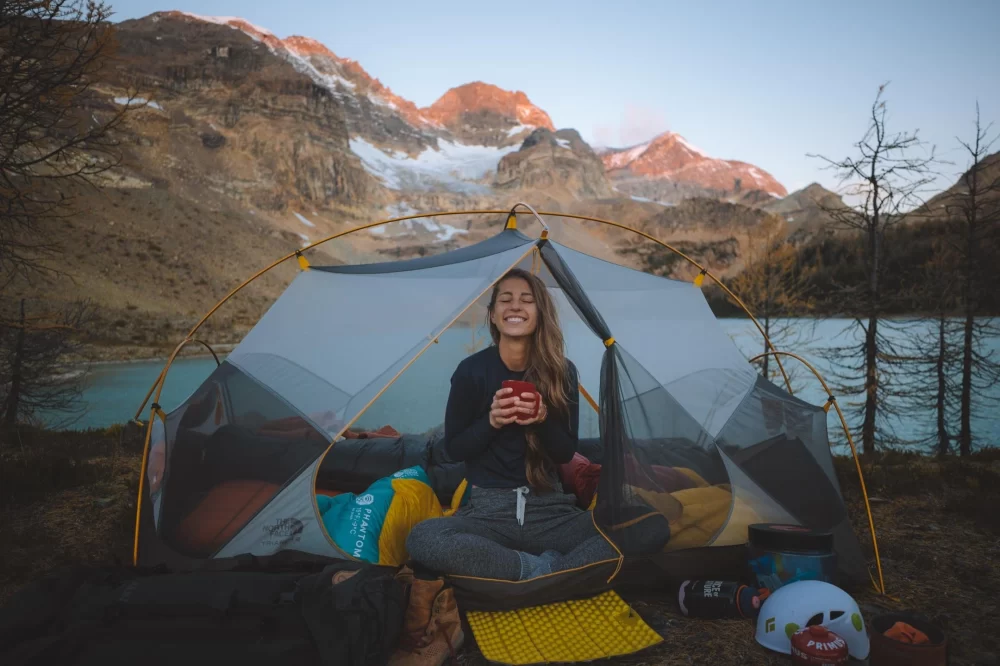Explore essential camping safety tips tailored for solo travelers in the US, including personal stories, gear advice, and practical strategies to camp confidently and safely alone.

What Sparked My Love for Solo Camping
It started with a backpack, a small tent, and a quiet desire to escape the constant noise of city life. I didn’t know much, but I knew I needed space—space to breathe, think, and just be. That first solo camping trip was somewhere in Colorado’s San Juan Mountains. I was nervous but also exhilarated. I made mistakes, sure—but I learned a lot about how to camp safely when you’re on your own.
Over the years, solo camping has become a regular part of my life. With every trip, I’ve fine-tuned my approach to safety, and today, I want to share the most important tips I’ve picked up along the way.
1. Let Someone Know Your Plans
Before I head out, I always share my detailed itinerary with at least two people I trust. I include where I’m staying, expected arrival and departure dates, and even backup plans if something changes. I learned this the hard way after a sudden storm left me stranded without cell service for 24 hours in the Sierra Nevada. Thankfully, my friend knew where I was and contacted the park ranger office. It’s a simple habit that can save your life.
2. Choose Your Campsite with Safety in Mind
2.1 Public vs. Dispersed Camping
When camping solo, I usually choose established campgrounds over dispersed sites. There’s a stronger sense of security when other campers are nearby, and you’re more likely to have access to ranger assistance, bathrooms, and emergency services. However, if I do opt for dispersed camping, I make sure it’s on legal land, check in with local rangers, and avoid areas too isolated.
2.2 Read the Environment
I take my time evaluating the surroundings. Is there fresh animal scat? Are there signs of recent use? Does it feel exposed or hidden? These little details help me avoid potentially dangerous situations—like one trip in northern Arizona, where I unknowingly pitched my tent in a dry wash, only to wake up in the middle of the night to flash flood warnings.
3. Gear Up for Safety and Confidence
3.1 Communication Devices
Cell service is a luxury in remote areas, so I carry a satellite communicator. It allows me to send check-in messages and contact emergency services if needed. It’s one of the most worthwhile investments I’ve made for solo travel.
3.2 Safety Essentials
My pack always includes a headlamp, multitool, bear spray, whistle, first-aid kit, and a compact power bank. I also carry a loud personal alarm and a tactical flashlight—both can deter unwanted attention, whether human or animal.
4. Trusting Your Instincts and Reading People
One of the most underrated safety skills is learning to trust your gut. I once arrived at a small, almost-empty campground in Texas and instantly felt uneasy. Something just didn’t sit right. I packed up and drove to another site, even though it was an hour away. Later, I heard a report about suspicious activity in that original location. Always trust your instincts—even if it means changing plans.
When meeting people on the trail or at a campsite, I stay friendly but vague. I never reveal I’m traveling alone until I trust someone fully. I might casually mention that my friend is on their way or that someone is meeting me soon. It’s a harmless fib that adds a layer of security.
5. Food Storage and Wildlife Safety
5.1 Avoiding Unwanted Visitors
One of the first things I learned camping solo in Yellowstone was how important food storage is. I had no idea that the faintest scent of toothpaste or snack wrappers could attract bears or raccoons. Now, I use bear canisters or hang my food when required, and I always clean my cooking area thoroughly before bed.
5.2 Cooking Smart
When alone, I keep my cooking simple and quick. I avoid cooking strong-smelling meals, and I never cook inside my tent. Keeping everything clean and odor-free is key to a peaceful night’s sleep in bear country.
6. Fire Safety and Nighttime Precautions
Campfires are comforting, but they require respect. I follow local fire regulations strictly and never leave a fire unattended. When solo, I build only small fires and make sure they're completely extinguished before I turn in. At night, I keep my flashlight, knife, and alarm within reach inside my tent. It gives me peace of mind and helps me sleep soundly.
7. Mental Preparation and Embracing Solitude
Camping alone can be intimidating at first. The quiet can feel overwhelming, especially in the dark. But the more I practiced, the more I came to love the solitude. I bring a journal, a good book, and sometimes a small speaker to play music softly. I also practice mindfulness and breathing exercises if I feel anxious.
Solo camping has helped me become more self-reliant and aware of my surroundings. It’s not just about physical safety—it’s about feeling confident in your own company and learning to enjoy the silence.
8. Learning from Each Trip and Staying Flexible
Every solo camping trip teaches me something new. Whether it’s a new piece of gear that makes life easier or a misstep that helps me improve my planning, I embrace the learning process. If there’s one piece of advice I’d give to any solo camper, it’s to stay curious and flexible. Plans change, trails get washed out, and gear fails. Being able to adapt makes the experience not only safer but also more rewarding.
And if you're new to solo camping or looking for a safe place to start, I highly recommend checking out Pine Cliff Resort. We offer beautiful, secure sites that are perfect for first-time solo campers and seasoned adventurers alike.
Uncle Eddie's
553 Straight Creek, Munday, WV 26152, USA
Visit Location PageCampground Area B
Todd Township, PA 17233, USA
Visit Location Page